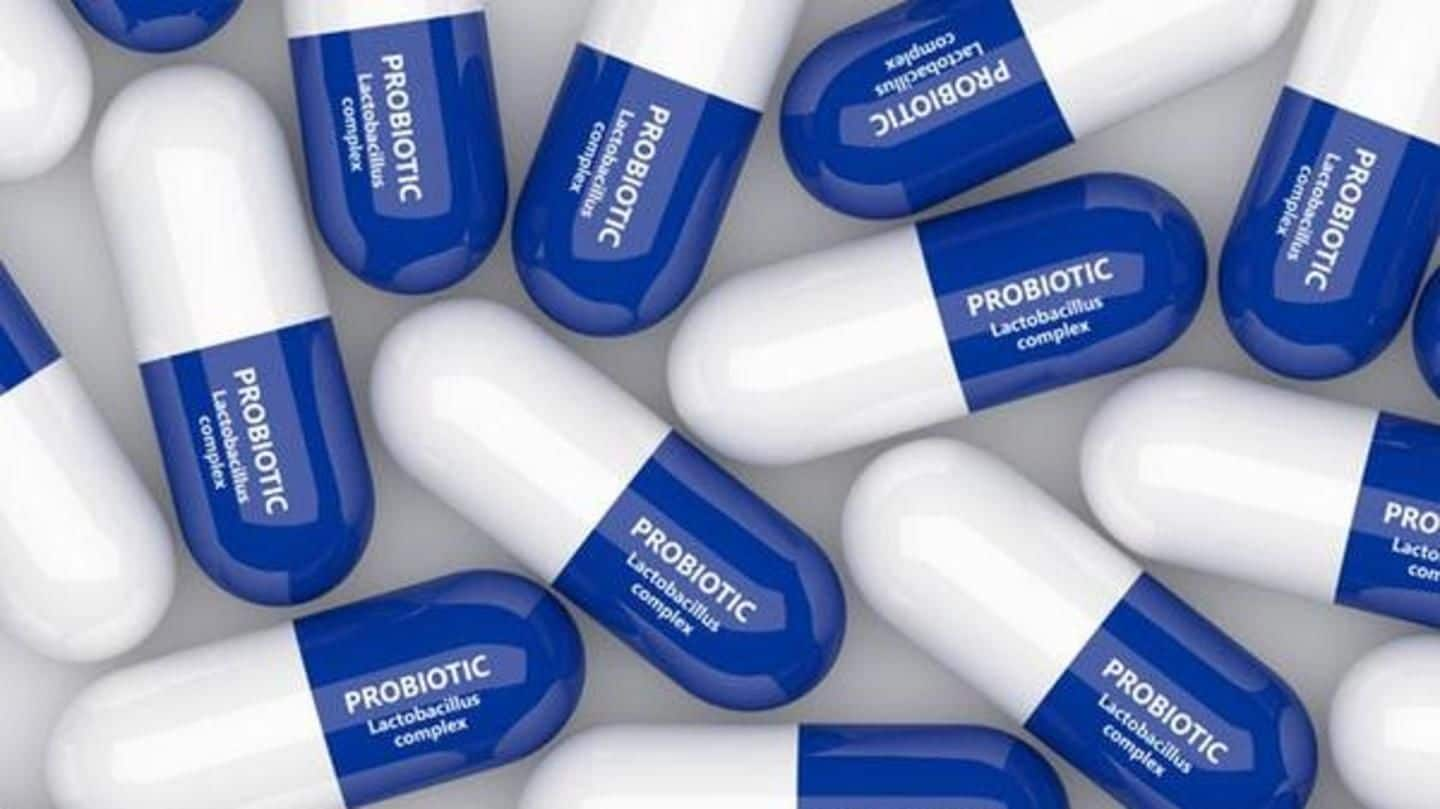
#HealthBytes: Here's why you need to stop taking probiotics
What's the story
Probiotics are food items and supplements, containing live bacteria and yeasts, commonly known to have positive effects on your health. Though probiotics can help improve digestion, gut health, and immunity, not everything about them is good. In fact, in some cases, there can be really harmful side effects of consuming probiotics. Here are 5 potential side-effects of taking probiotics.
Digestive reactions
Probiotics may temporarily lead to unpleasant digestive symptoms
Though not very common, taking bacteria-based probiotics have shown to temporarily cause gas and bloating. It may even lead to increased thirst and constipation. In most cases, such symptoms are temporary, and it is advisable to start taking probiotics at a relatively smaller dose, before moving on to a greater dose. However, if symptoms persist, stop taking the probiotic and talk to your doctor.
Allergies
Probiotics may cause unwanted allergic reactions to some
Some probiotic supplements may contain allergens such as egg, dairy, or soy. Thus, an allergic person must always read the labels on the packet carefully to avoid any unwanted reactions. Similarly, people with yeast allergies should go for bacteria-based probiotics instead of yeast-bases ones. Many probiotic supplements also contain milk sugar (or lactose), thus people having lactose intolerance must steer clear of these.
Biogenic Animes
Probiotic food items might trigger headaches
Biogenic animes (substances formed due to aging/fermentation of protein-containing foods) in some probiotic food items like yogurt and kimchi, may affect people with sensitivity to them. Common biogenic animes such as histamine, tyramine, tryptamine and phenylethylamine may excite the central nervous system, disbalance blood flow, and may lead to mild to severe headaches. Opting for supplements that are free from these substances can help.
Infections
Probiotics may lead to infections in some people
Though uncommon, taking probiotics may increase one's risk of getting infections. That's because, some bacteria and yeasts found in probiotics can enter the bloodstream, and become a cause of infections among some people. Those at a greater risk include people with weak immunity, or those who have undergone recent surgeries. Such individuals should, at best, refrain from consuming probiotics.